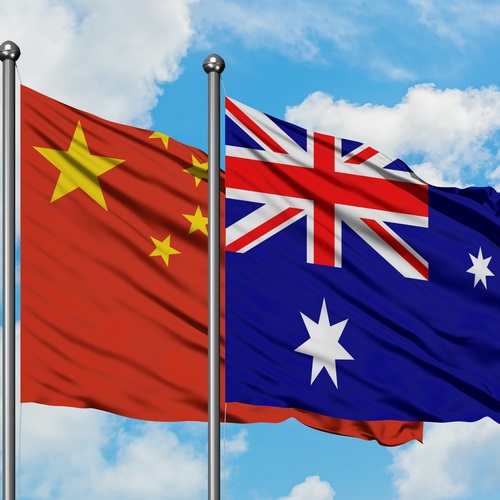When it comes to Chinese money in Australia — the gloves are off!
That was the takeaway from the Australian Financial Review’s latest exposé. A story which revealed that Josh Frydenberg has personally rebuked a significant Chinese investment.
According to the AFR, the $600 million acquisition of Lion Dairy & Drinks by China Mengniu Dairy Company Ltd has not sat well with Frydenberg. Even though both the Foreign Investment Review Board (FIRB) and Treasury are A-OK with the deal.
It’s a somewhat surprising revelation. Especially as Frydenberg approved China Mengniu Dairy’s previous $1.5 billion bid for Bellamy’s.
Plus, it’s not like this deal involves any Australian agricultural land. It is simply a takeover of the brands themselves. Which seems fairly innocuous as Lion is already Japanese owned anyway.
But that is precisely why this story is so significant.
It is pretty damn clear that the problem isn’t a matter of national security. Even if that winds up being the publicly stated reason.
No, it seems the problem is simply China.
Because as Sino-Australian relations continue to be tested, foreign investment seems to be the next sticking point. The latest conflict in the far broader diplomatic ‘divorce’.
You can read all about Australia’s messy break-up with China in Greg Canavan’s latest report.
The real concern though, is what sort of implications this will have moving forward.
Because a war of words is one thing — but a war on foreign investment? Well that could have far broader consequences…
[conversion type=”in_post”]
Not all money is good money
At the heart of this matter is the government’s growing ‘tough on China’ attitude.
A stance that is clearly very Trump-esque and designed to appeal to the voting public.
I’m sure plenty of Australians are happy to see our politicians stick it to China finally. Whether or not it is healthy for the economy though…well that is far less clear.
Because love it or hate it, foreign investment is a big catalyst for economic activity.
And when it comes to Chinese money, well there are certain sectors that are more exposed than most.
Historically, China has been our fifth-largest foreign direct investor. With the Middle Kingdom accounting for some $40.5 billion worth of capital in 2018 alone.
However, as the Secretary to the Treasury — Philip Gaetjens — made clear back then, Chinese investment was fairly limited in its scope. During the 2016–17 financial year, for instance, the top three sectors approved for Chinese investment were real estate, manufacturing and energy, and resources.
Now that may not come as a great surprise to you.
However, the fact that land and minerals are at the top of the list is something worth noting. Because if the government doesn’t start to relent on Chinese money, then it is these sectors that could suffer the most.
Resource stocks, especially the smaller and more speculative companies, could be in for a world of hurt. Because as The West Australian rightly points out:
‘Very often the Chinese are the only ones who will put serious money into these [resource] projects because they are one of the few with the processing knowledge and a market that is able to soak up the product by way of off-take agreements that can be used to back initial equity investments.’
For this reason, investors may want to be wary of any junior miners with ties to China. Because at any point, the government may choose to make an example of them and ban any involvement of Chinese money.
Even if it comes at the expense of the project itself.
Caught in the crossfire
Where all this messy diplomatic interventionism ends, I don’t know.
It is clear that all the government cares about is sticking it to China though. Again, whether that is a good thing or a bad thing is in the eye of the beholder.
There are certainly merits to protecting our national assets. But this kind of protectionism comes at a cost.
As the AFR’s key source on the Frydenberg matter states:
‘We now have a foreign investment regulatory regime that is entirely aimed at China that affects everyone across the board.’
This is reference to the sweeping FIRB reforms that were officially detailed back in June. Though the changes themselves were flagged as early as March.
Under these reforms, any foreign investment must now be reviewed by the FIRB.
It doesn’t matter if it’s someone from New Zealand looking to spend $1 on a cardboard box. Or a US magnate willing to spend $1 billion on a new venture. Both must be equally scrutinised by the FIRB for approval.
The real goal, of course, is to isolate and stall Chinese deals. But the problem is that it is causing a backlog of other approvals. Stalling the investment process and potentially hampering our potential to attract foreign capital.
That is an outcome that has vast ramifications. Because as DFAT themselves state:
‘Without foreign investment Australia would be unable to build our economy to its full potential.’
For Aussies investors, this is something to be very wary of. Because there are plenty of companies (of all shapes and sizes) often relying on foreign capital to bankroll new projects or ventures.
With these new rules in place, getting a hold of that capital may be far trickier.
And if it’s Chinese capital, well you may as well kiss that money goodbye altogether.
For that reason, I’d be doing as much due diligence as possible for property or resource stocks. Because if Frydenberg is serious about blocking this milk deal, then all bets are off as to what is allowed and what isn’t.
Regards,
 |
Ryan Clarkson-Ledward,
Editor, Money Morning
PS: Check out these four innovative Aussie small-cap stocks before lockdown ends. Download your free report now.

